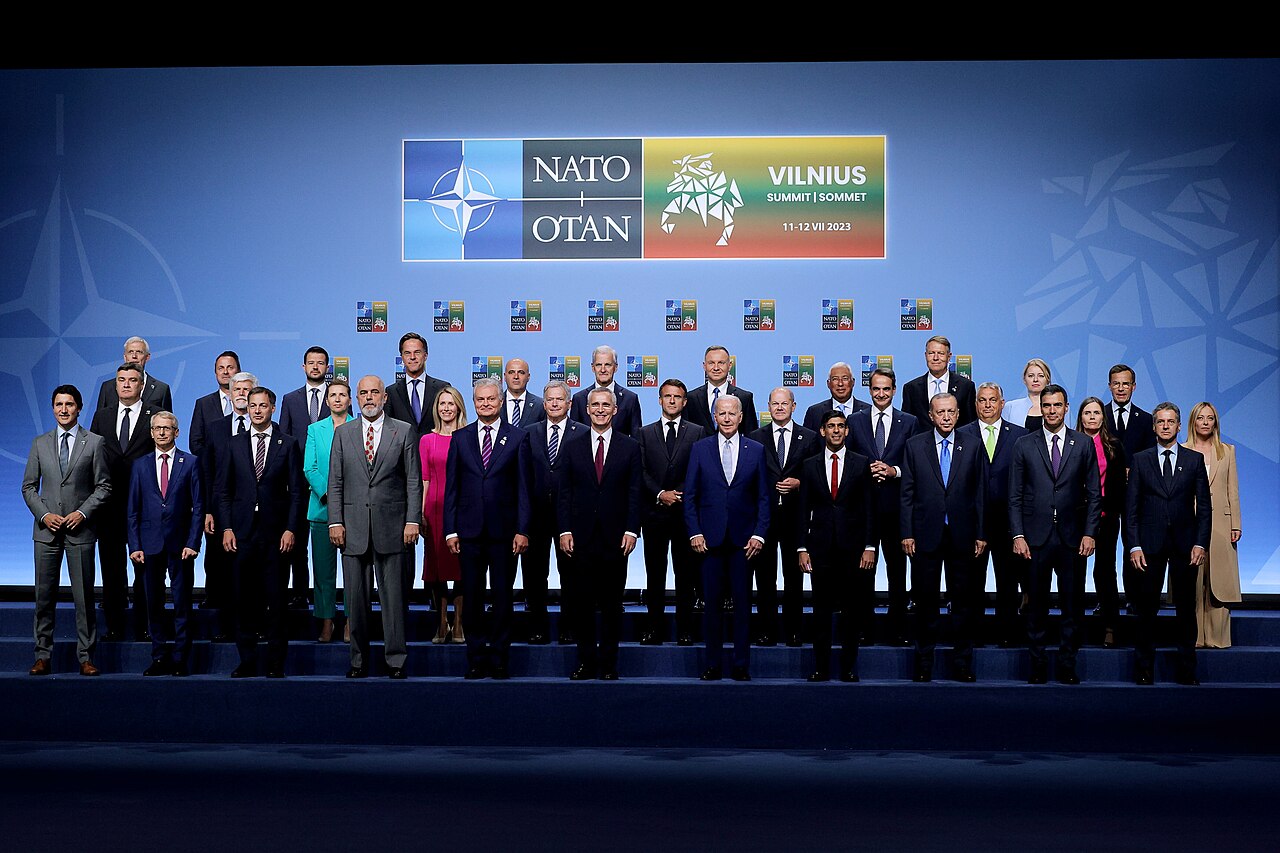
On 11-12 July 2023, the Lithuanian capital Vilnius hosted the 33rd NATO Summit. The Russia-Ukraine war was the number one item on Summit’s agenda. Allies designated Russia as one of the top two threats to NATO. Terrorism was labeled as the other. To counter these and other threats, NATO’s collective commitment to strengthen its deterrence and defense capabilities was underlined and several regional plans were approved. NATO countries restated their pledge to invest a minimum of 2% of the GDP annually on defense. They also endorsed a Defence Production Action Plan to facilitate joint procurement, interoperability, and production. Allies agreed upon a multi-year assistance program for Ukraine. In addition, the establishment of the NATO-Ukraine Council which will be a “new joint body where Allies and Ukraine sit as equal members to advance political dialogue, engagement, cooperation, and Ukraine's Euro-Atlantic aspirations for membership in NATO” was announced. As explained in the Summit Communique, this council is expected to “provide for joint consultations, decision-making, and activities, and will also serve as a crisis consultation mechanism between NATO and Ukraine.” However, to the great disappointment of Kyiv, the Allies did not go any further than stating that an invitation to join NATO would be extended to Ukraine “when Allies agree and conditions are met.” As to terrorism, the meeting between President Erdoǧan of Türkiye, Prime Minister Kristersson of Sweden, and NATO Secretary General Jens Stoltenberg resulted in an agreement to establish, for the first time at NATO, the post of Special Coordinator for Counter-Terrorism.
In Vilnius, China was designated as a challenge against NATO interests, security, and values. Inter alia, the participation of the heads of state and government of Australia, Japan, New Zealand, and the Republic of Korea in the Summit was an outcome of NATO’s China perception. Still, NATO declared that it “remain[s] open to constructive engagement with the PRC, including to build reciprocal transparency, with a view to safeguarding the Alliance's security interests.” Lastly, Finland's recent accession to NATO was welcomed and President Erdoğan's greenlight to Sweden's membership to the Alliance was highly appreciated.
The Black Sea Security
The key decisions of the Summit were summarized in the Summit Communiqué under 90 articles. Black Sea security was one of the topics that was mentioned in this communique. The Communique (article 14) determined Russia’s increased military presence in the Baltic Sea, Black Sea, Mediterranean Sea, and the Arctic region and the High North. The Black Sea region’s strategic importance, which has been further increased by “Russia's war of aggression against Ukraine” was underlined, as well. Article 79 of the Communique expressed Allies’ commitment to their “continued support to Allied regional efforts aimed at upholding security, safety, stability and freedom of navigation in the Black Sea region including, as appropriate, through the 1936 Montreux Convention” (emphasis added). In the same Article, it was also stated that Allies “will further monitor and assess developments in the region and enhance our situational awareness, with a particular focus on the threats to our security and potential opportunities for closer cooperation with our partners in the region, as appropriate.”
Affirmation of the Montreaux Convention
As can be seen, with Article 79 of the Communique, the Allies affirmed the significance of the Montreux Convention for NATO’s Black Sea strategy. As such, it was seen that Türkiye’s position on upholding the Convention was shared by the Allies.
This coherence between Türkiye and the other NATO countries is a substantial strength of NATO in the Black Sea region. Moreover, given that some Western political and think tank circles have been running a tacit campaign to nullify and/or revise the Convention - a target that no Turkish government can accept - the concurrence on this issue may have a positive effect on the overall relations between Türkiye and its western allies and partners.
Yet, in contrast to this optimistic assessment, some former Turkish diplomats and academics whom I talked with expressed their discomfort with the usage of the rather ambiguous phrase “as appropriate” which they perceived as a very delicate and diplomatic way of putting conditionality on the applicability of the Convention. If that is really the case, a shadow will be cast on the above-mentioned bright prospect.
The Grain Deal and the Venture to Trespass Montreux Convention
On 17 July, Russia announced that it would not extend the grain deal that was to expire on the same day. As a result, the possibility of the shipment of Ukrainian and Russian grain to the world via the Turkish Straits is significantly jeopardized. Unless Russia turns back to the deal, global food security will be at peril.
This risky situation created by the Kremlin’s decision to pull out of the grain deal seems to set the above-mentioned circles in motion yet again. On 18 July, for example, the Wall Street Journal published an opinion piece under the editorial board’s signature titled “Countering Russia's Grain Deal Extortion” with the spot “a naval escort operation may be required if Putin imposes a blockade.” In this opinion piece, the WSJ practically cheered an operation to be carried out by the war vessels of non-littoral Western states to help sustain the grain shipments from the Ukrainian ports.
This might be signaling a renewed campaign for revising or simply trespassing the Montreux Convention. If this is the case, the prospective improvement of the relations between Türkiye and its western allies and partners may be significantly injured. Since no interested party would wish to assume the responsibility for such a result, everyone would be well advised to abstain from attempts to change the status of the Black Sea by playing with the Montreux Convention.
*Photograph: Wikipedia
© 2009-2025 Center for Eurasian Studies (AVİM) All Rights Reserved
No comments yet.
-
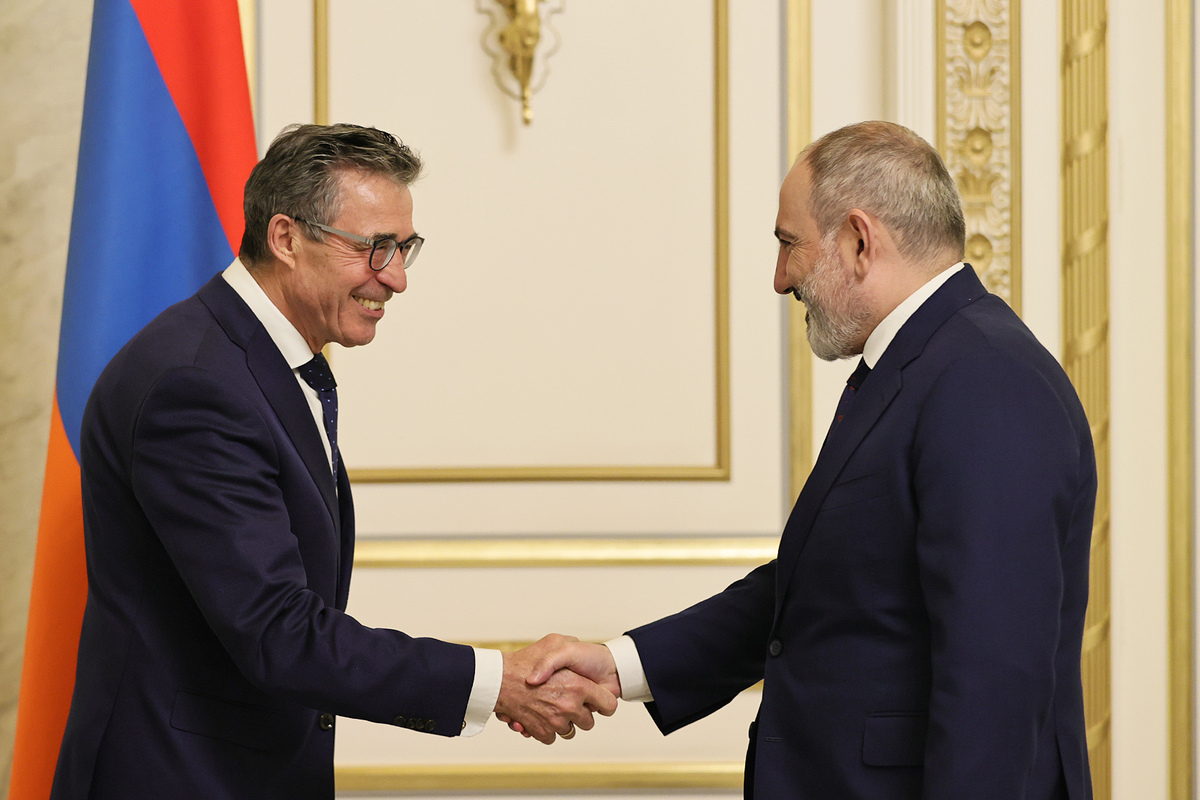 FORMER NATO SECRETARY GENERAL RASMUSSEN AND ARMENIA'S GAME PLAN
FORMER NATO SECRETARY GENERAL RASMUSSEN AND ARMENIA'S GAME PLAN
Turgut Kerem TUNCEL 23.03.2023 -
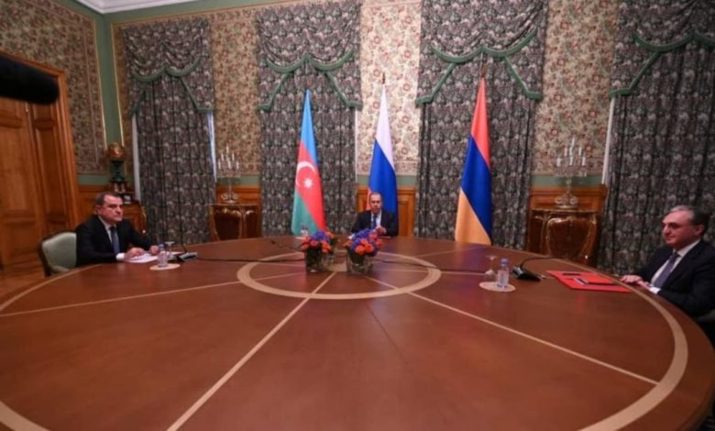 THOUGHTS ON THE PROSPECTIVE ‘PEACE TALKS’ AFTER THE RECENT ESCALATION IN KARABAKH
THOUGHTS ON THE PROSPECTIVE ‘PEACE TALKS’ AFTER THE RECENT ESCALATION IN KARABAKH
Turgut Kerem TUNCEL 12.10.2020 -
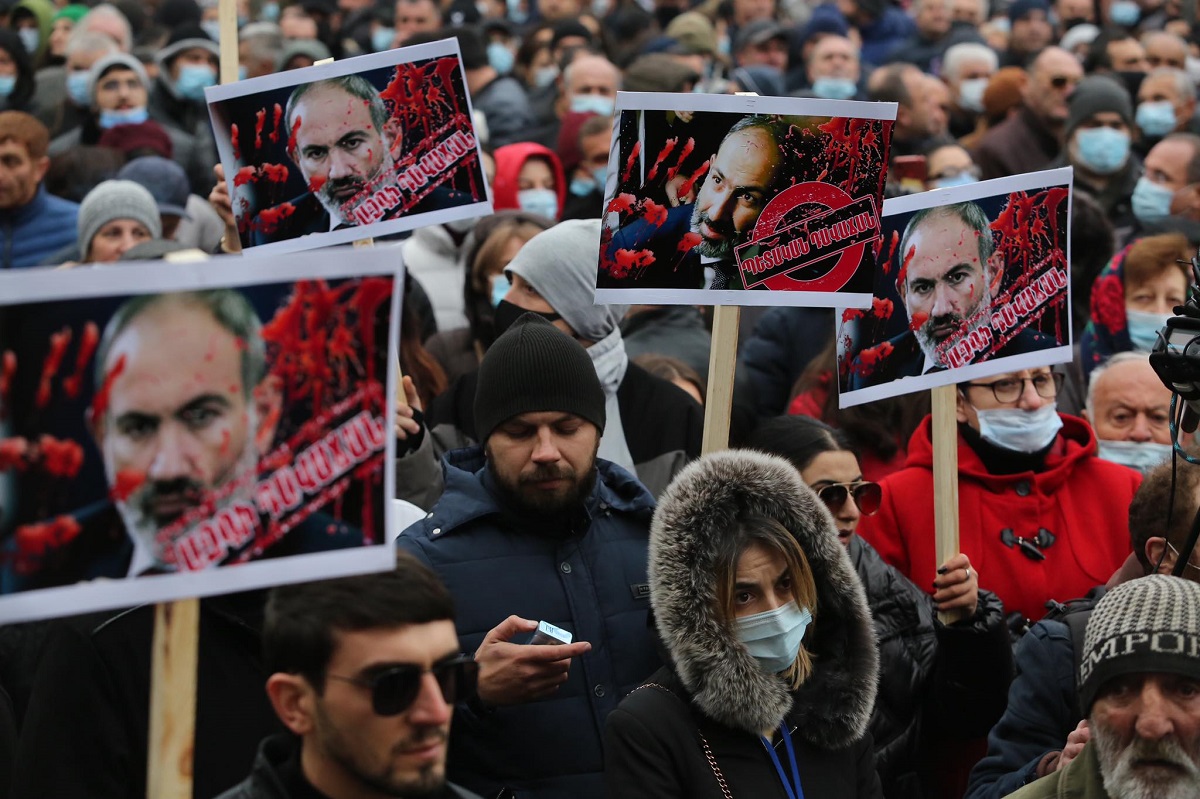 DEVELOPMENTS IN POST-2020 KARABAKH WAR ARMENIA AND THEIR IMPLICATIONS – 1: THE RIVALRY BETWEEN THE OPPOSITION AND PASHINYAN
DEVELOPMENTS IN POST-2020 KARABAKH WAR ARMENIA AND THEIR IMPLICATIONS – 1: THE RIVALRY BETWEEN THE OPPOSITION AND PASHINYAN
Turgut Kerem TUNCEL 05.03.2021 -
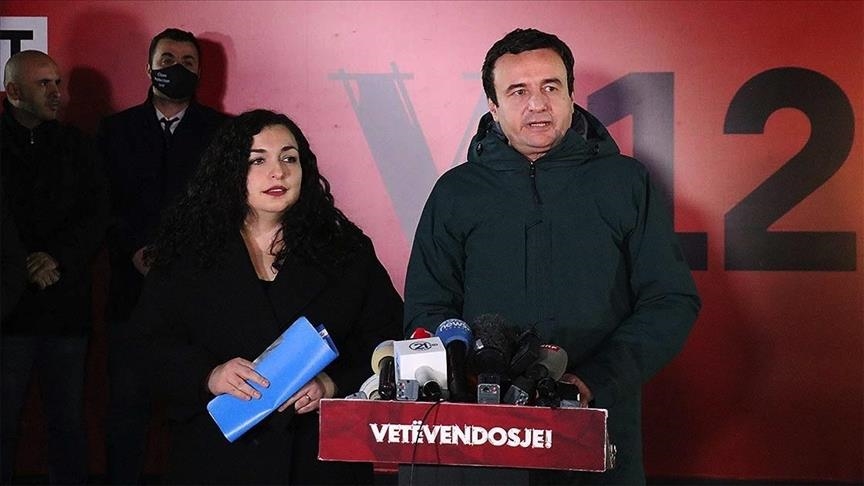 OPPORTUNITIES AND CHALLENGES AHEAD OF KOSOVO AFTER THE FEBRUARY 2021 PARLIAMENTARY ELECTIONS
OPPORTUNITIES AND CHALLENGES AHEAD OF KOSOVO AFTER THE FEBRUARY 2021 PARLIAMENTARY ELECTIONS
Turgut Kerem TUNCEL 22.02.2021 -
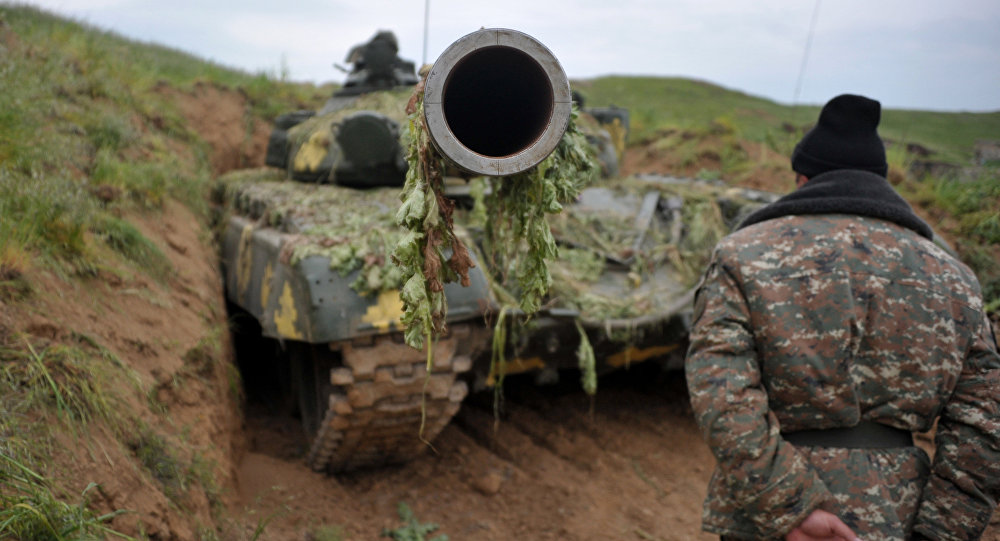 AN APPEAL OF THE ARMENIAN AND AZERBAIJANI CIVIL SOCIETY ACTIVISTS TO THE PRESIDENTS OF ARMENIA AND AZERBAIJAN
AN APPEAL OF THE ARMENIAN AND AZERBAIJANI CIVIL SOCIETY ACTIVISTS TO THE PRESIDENTS OF ARMENIA AND AZERBAIJAN
Turgut Kerem TUNCEL 05.12.2016
-
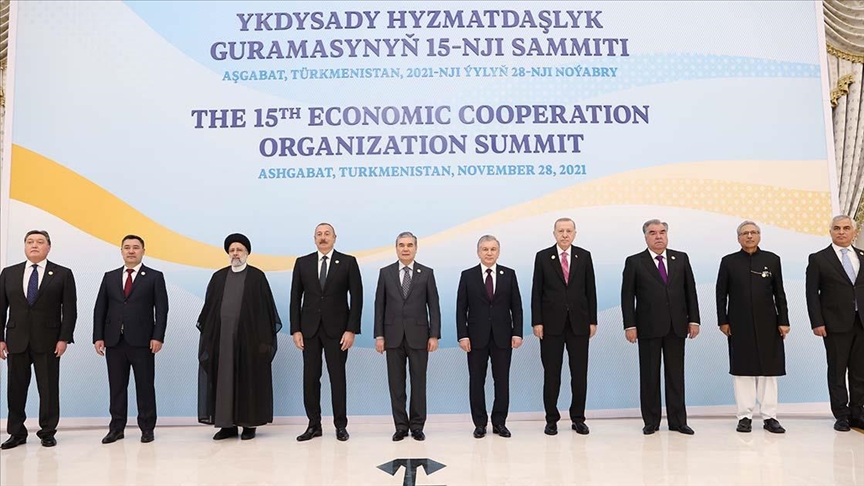 15TH SUMMIT OF LEADERS OF THE ECONOMIC COOPERATION ORGANIZATION
15TH SUMMIT OF LEADERS OF THE ECONOMIC COOPERATION ORGANIZATION
Gülperi GÜNGÖR 14.12.2021 -
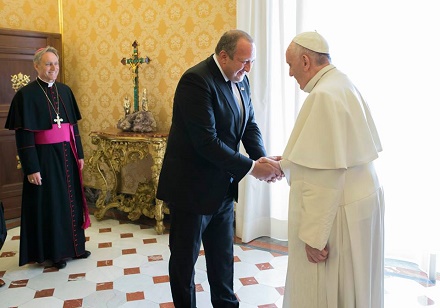 POPE’S VISIT TO GEORGIA AND ECUMENISM
POPE’S VISIT TO GEORGIA AND ECUMENISM
AVİM 02.09.2016 -
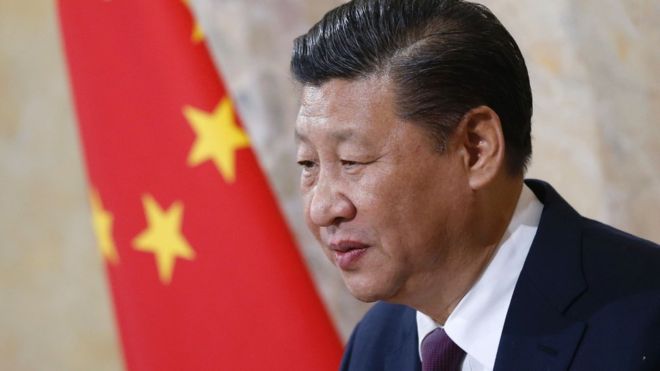 CHINA: THE EMERGING GLOBAL LEADER
CHINA: THE EMERGING GLOBAL LEADER
Özge Nur ÖĞÜTCÜ 02.02.2017 -
 THE ARMENIAN PATRIARCHATE OF JERUSALEM COMPLAINS OF RIGHTS VIOLATIONS WHILE CONTINUING ITS UNDUE POSSESSION
THE ARMENIAN PATRIARCHATE OF JERUSALEM COMPLAINS OF RIGHTS VIOLATIONS WHILE CONTINUING ITS UNDUE POSSESSION
AVİM 05.04.2018 -
SARKOZY IS IN ARMENIA I
Ömer Engin LÜTEM 15.10.2011
-
25.01.2016
THE ARMENIAN QUESTION - BASIC KNOWLEDGE AND DOCUMENTATION -
12.06.2024
THE TRUTH WILL OUT -
27.03.2023
RADİKAL ERMENİ UNSURLARCA GERÇEKLEŞTİRİLEN MEZALİMLER VE VANDALİZM -
17.03.2023
PATRIOTISM PERVERTED -
23.02.2023
MEN ARE LIKE THAT -
03.02.2023
BAKÜ-TİFLİS-CEYHAN BORU HATTININ YAŞANAN TARİHİ -
16.12.2022
INTERNATIONAL SCHOLARS ON THE EVENTS OF 1915 -
07.12.2022
FAKE PHOTOS AND THE ARMENIAN PROPAGANDA -
07.12.2022
ERMENİ PROPAGANDASI VE SAHTE RESİMLER -
01.01.2022
A Letter From Japan - Strategically Mum: The Silence of the Armenians -
01.01.2022
Japonya'dan Bir Mektup - Stratejik Suskunluk: Ermenilerin Sessizliği -
03.06.2020
Anastas Mikoyan: Confessions of an Armenian Bolshevik -
08.04.2020
Sovyet Sonrası Ukrayna’da Devlet, Toplum ve Siyaset - Değişen Dinamikler, Dönüşen Kimlikler -
12.06.2018
Ermeni Sorunuyla İlgili İngiliz Belgeleri (1912-1923) - British Documents on Armenian Question (1912-1923) -
02.12.2016
Turkish-Russian Academics: A Historical Study on the Caucasus -
01.07.2016
Gürcistan'daki Müslüman Topluluklar: Azınlık Hakları, Kimlik, Siyaset -
10.03.2016
Armenian Diaspora: Diaspora, State and the Imagination of the Republic of Armenia -
24.01.2016
ERMENİ SORUNU - TEMEL BİLGİ VE BELGELER (2. BASKI)
-
AVİM Conference Hall 24.01.2023
CONFERENCE TITLED “HUNGARY’S PERSPECTIVES ON THE TURKIC WORLD"









